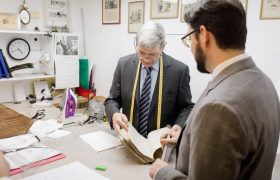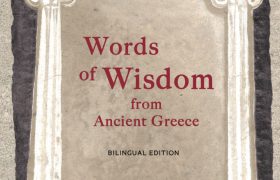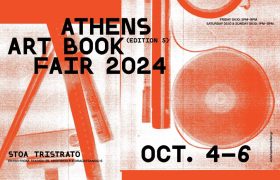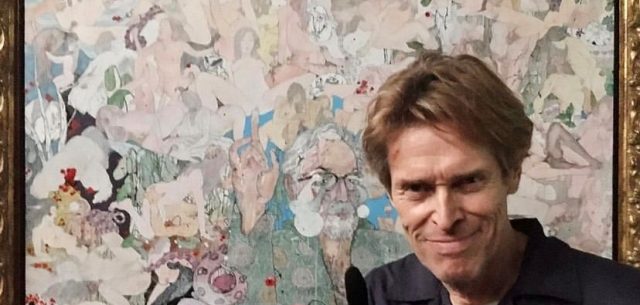Arrested Song: A Novel about Greece by award-winning Canadian author Irena Karafilly

Diana Farr-Louis interviews Irena Karafilly, author of Arrested Song, set in Lesvos, on the life and times of the intrepid Calliope Adham, a feminist before her time who challenged village traditions and morality. Spanning the arc of Greece’s troubled history from the German Occupation during WWII to the military dictatorship, Arrested Song makes for compelling reading.
It isn’t often that one reads a novel one can’t put down. It’s even rarer to want to read it again almost immediately because it is so rich and rewarding, its intriguing characters evolving and interacting over more than three decades of turbulent Greek history. It is rarer still to be able to meet and talk to the author. Irena Karafilly has become my newest favorite novelist, earning a place alongside Louise Erdrich, Elif Shafak, and Barbara Kingsolver. The more I read her, the more I marvelled at her imagination, language, portraits, plots, and ability to weave all the strands into an epic, thought-provoking saga that kept me turning pages long after I should have turned off the light. Though we had been FB friends, we had no direct communication until last October when a chance comment resulted in my getting an advance copy of Arrested Song, Karafilly’s magnum opus.
Set in Lesvos, mostly in the village of Molyvos, from 1941 to 1974, Arrested Song by Irena Karafilly depicts the tumultuous life of Calliope Adham, a linguistically gifted schoolmistress who lives through the German Occupation, Civil War, and dictatorship years.
I’m giving nothing away by saying that Calliope’s role as interpreter brings her into direct contact with the German high command, and that she slips into a complicated relationship with Wehrmacht Lieutenant Lorenz Umbreit, despite being active in the Resistance.
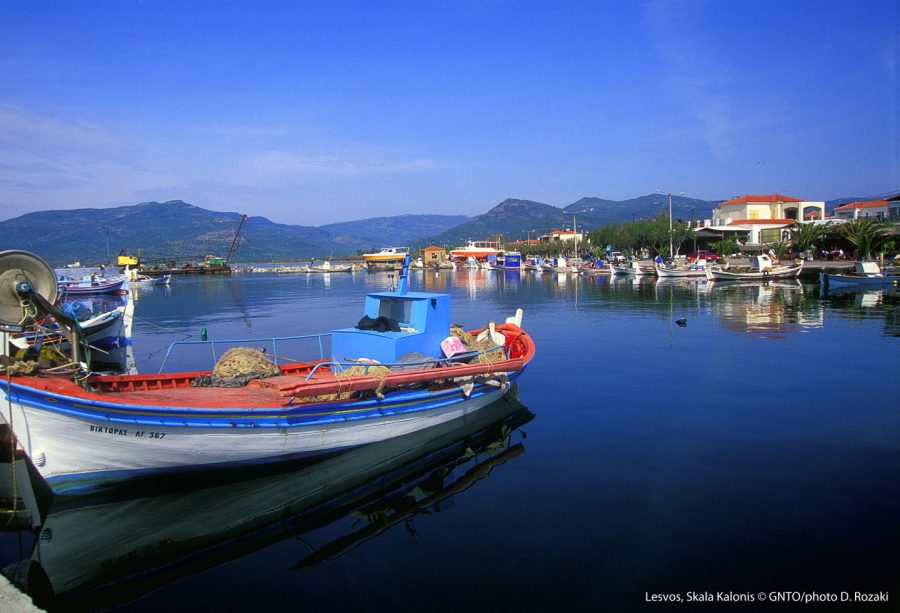
Lesvos Scala Kaloni ©GNTO D. Rozaki
Calliope has an independent streak that sets her apart from other women of her era, but we get to know many ordinary villagers, male and female, members of the Resistance and collaborators, Communists and Royalists, intellectuals and fishermen, gypsies and foreigners, and we watch some of them grow up and others die. None of them are stereotypes; all are sketched with a keen observer’s eye for detail, for village politics, treachery and hypocrisy, as well as kindness and courage. Karafilly possesses a playwright’s ear for dialogue, so I watched and “listened,” fascinated by her grasp of both the local scene and the broad historical events. She describes everything vividly and seductively, with none of the slips and errors so common in most foreigners’ books about Greece.
Karafilly’s own background may have contributed to her sensitivity to other cultures. Born in Russia to a Polish father and Russian mother, she has lived in several countries, including Greece. She was mostly educated in Canada, “that most generous of countries,” where she pursued her interest in creative writing, earning three university degrees without ever acquiring a high school diploma. After discovering Lesvos on a summer holiday, she won a writing grant and decided to return to the island, where the grant money would go further.
She ended up staying in Greece for the better part of a decade. Her first published book was a collection of Greek village stories, written in English after earning an M.F.A. in Creative Writing. As she told me over tea in her sun-filled study in the northern suburbs of Athens, “English is not my mother tongue, but it’s the only language I know well enough to write in.” She laughed. “I speak several languages badly but can swear perfectly in Greek and Polish.”

Author Irena Karafilly with her latest book Arrested Song, published by Legend Books
These days, Karafilly divides her time between Montreal and Athens, but the only place in which she claims to feel entirely at home is between the pages of a good book.
“I always liked to write, and, inspired by Anne Frank, bought a diary at the age of twelve.”
The interest in the diary lasted three days.
“I’ve never found my own life compelling enough to memorialize it,” Karafilly went on. “What I seem to enjoy most is inhabiting some interesting person’s skin. It’s something I used to do even as a child. I’d come home after encountering someone odd or somehow different and would go about imitating the stranger’s quirk. I longed to know what it would be like to be a blind person, or someone with an amputated leg, or just a nasal twitch.”
Karafilly combined writing and teaching with motherhood, studying The New Yorker’s fiction, and thinking off and on about a controversial village woman named Stella Ioannou, who had inspired a poem by Canada’s Irving Layton and, decades earlier, Stratis Myrivlis’ Greek classic, The Schoolmistress with the Golden Eyes. Eventually, Karafilly wrote a long story which The New Yorker rejected, encouraging her to turn the highly dramatic tale into a historical novel.
“But I was too inexperienced, and it was too early in my career to take on such a daunting project.”
However, the idea refused to be silenced and, after years of gestation, Karafilly finally felt confident enough to undertake an ambitious historical novel telling the story of the Greek nation’s ordeals through the life of one extraordinary woman.
A feminist before her time, Calliope Adham challenges village traditions and morality. She wears elegant trousers in the early 50s, something unheard of in a Greek village until much more recently. She has love affairs with several men, though Lorenz Umbreit continues to make tantalizing appearances.
“Stella Ioannou was a village legend in her own lifetime but after her death, the legend became complicated because of her shocking end. Old and suffering from dementia, she immolated herself rather than be committed to an old-age home. I did not think my indomitable Calliope would have done this, so I came up with a completely different resolution to my narrative. I often think of something Nabokov said: ‘Beauty plus pity – that is the closest we can get to a definition of art.’ Change pity to compassion and that would be my own definition.”
There is both beauty and a great deal of compassion in Arrested Song, but writing a historical novel is different from pure fiction because one has to remain true to the facts while giving free rein to one’s imagination.
“I knew that this would be the most ambitious book I would ever write, but I never anticipated that it would take so long. Seven years!” Karafilly sighed at the thought of all she had given up for this particular novel.
One of the most challenging aspects was researching the Civil War. There are plenty of histories covering Greece and World War II, but very little reliable material on the bloody struggle that ensued and the tensions that remained and bubbled back up when the colonels’ historic coup occurred in 1967. For this, in addition to extensive reading, Karafilly relied on discussions with islanders and others who had lived through this tragic era. The result is a book that could be of interest to anyone, male or female, Greek or foreigner, history lovers or just lovers of an unputdownable story set in a captivating island setting.
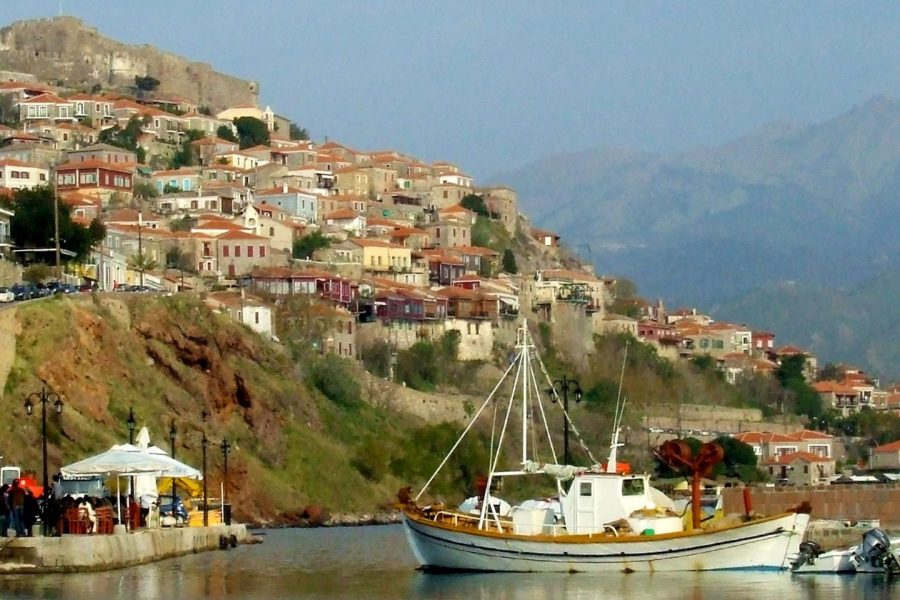
Lesvos ©Irena Karafilly
But what does Arrested Song mean? When I asked Karafilly, she pointed me to a chapter where Calliope and Umbreit chance to meet one summer evening at the Genoese fortress crowning the hilltop village. Together they listen to a nightingale’s enchanting song, something Calliope has not heard since the start of the Occupation. “. . .then, abruptly, it stopped and the silence was like a physical blow. It seemed somehow to unleash cosmic disappointment.”
Luckily for us, Irena Karafilly kept the song going, unleashing vast enjoyment, a thrilling experience in every respect.
Arrested Song by Irena Karafilly is scheduled to be released in the UK in March 2023 by the award-winning indie publisher, Legend Press. For more information about the book and previous works, check out the author’s website, irenakarafilly.com

